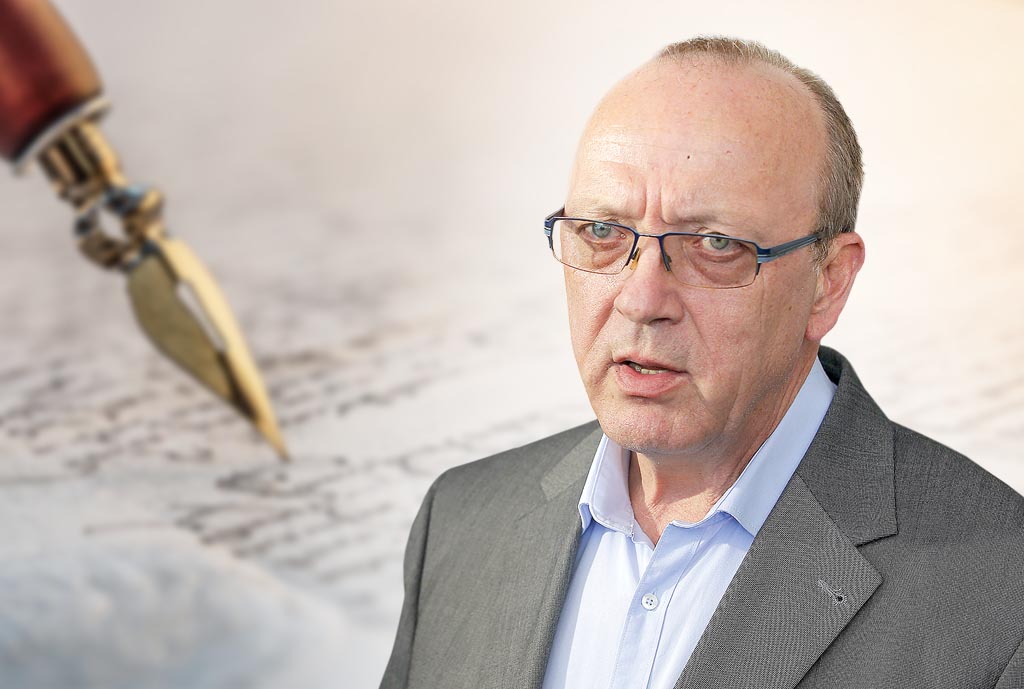By: Dr Vinko Gorenak
As you already know, the coalition began by purging “Janšists” from the police. In my 54 years of working in and following the police force, I cannot recall anything like this ever happening. In practice, the “cleansing of Janšists” under the Golob administration meant the removal of personnel who had advanced during Janša’s term or were allegedly sympathetic to him. Just the announcement of such actions should have alerted around 200 prosecutors, since it essentially constitutes a criminal offense, yet nothing happened.
Moreover, I have known the history of the police both professionally and politically since 1974. Never in Slovenia’s history has a Prime Minister been protected in such a way, outside of the official police structure, as is currently the case with Robert Golob. Not even Janez Drnovšek did anything like this. But it appears that President Nataša Pirc Musar will now adopt a similar protection arrangement, something even Milan Kučan, who is considered a left-wing political icon, never did. It seems only a matter of time before the Speaker of the National Assembly, Urška Klakočar Zupančič, follows suit. That would likely mark the beginning of the collapse of the state’s personal protection system, something the professional community certainly does not want.
Just a few days after the swearing-in of Slovenia’s first democratically elected government under Lojze Peterle in 1990, I received a call from then-Minister of the Interior Igor Bavčar, who offered me a position as an advisor in his cabinet, specifically in charge of transforming the one-party militia into a modern police force in a democratic country.
In the context of this piece, I am especially focused on the relationship between police officers and citizens. At the time, I had the privilege of visiting several foreign police services with my colleagues. One moment sticks out, during a visit to Switzerland, a local police officer explained that he personally handles all local disturbances of public order. I asked, perhaps a bit stereotypically, whether this also applied to serious bar fights. “Of course,” he replied. I did not quite understand until his superior, who was familiar with the situation in Slovenia (his wife was Slovenian), clarified: the moment a police officer walks into a bar, the fight stops. Because the officer represents authority, and more importantly, someone people trust. If help is needed, citizens assist the officer in calming the situation.
Over time, I have watched the relationship between police and citizens deteriorate. But two recent events gave me hope that things may be moving in a better direction.
Not long ago, I was walking up to the lookout tower in Lendava. The road was narrow, running through a ravine, and when a pedestrian met a car, one of them had to stop – or the pedestrian had to grab a nearby branch and step aside onto the slope. As a pedestrian, I was surprised when a police vehicle approached me: the officer drove by very slowly and gestured with his hand to thank me for stepping aside.
A few days later, I was driving from Planina pri Sevnici to Šentjur. Somewhere along the way, a young police officer stopped me. Naturally, I assumed it was for speeding and expected a fine. But the officer politely greeted me and explained there was a large oil spill on the road a few hundred meters ahead. “Please drive carefully,” he added.
These two positive encounters reminded me of the time when we actively worked toward better cooperation between the police and the public. Back in 1990, I had hoped those changes would come immediately, but it turns out real transformation does not begin until the old “socialist” militiamen are no longer on the streets, and we deal only with professional police officers. That process is slowly, but surely, coming to fruition. Clearly, real reform in the police force takes decades, not just years.
